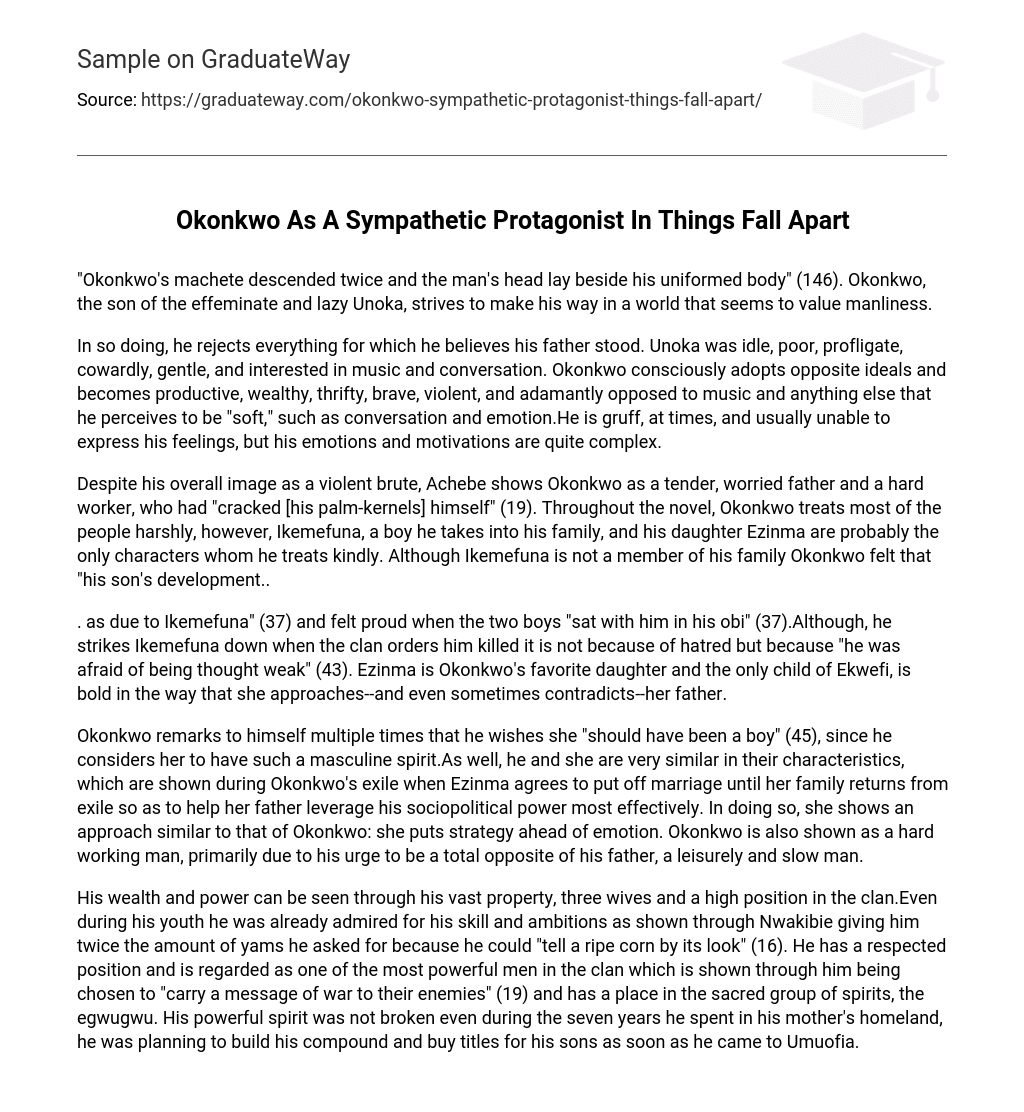“Okonkwo’s machete descended twice and the man’s head lay beside his uniformed body” (146). Okonkwo, the son of the effeminate and lazy Unoka, strives to make his way in a world that seems to value manliness.
In so doing, he rejects everything for which he believes his father stood. Unoka was idle, poor, profligate, cowardly, gentle, and interested in music and conversation. Okonkwo consciously adopts opposite ideals and becomes productive, wealthy, thrifty, brave, violent, and adamantly opposed to music and anything else that he perceives to be “soft,” such as conversation and emotion.He is gruff, at times, and usually unable to express his feelings, but his emotions and motivations are quite complex.
Despite his overall image as a violent brute, Achebe shows Okonkwo as a tender, worried father and a hard worker, who had “cracked [his palm-kernels] himself” (19). Throughout the novel, Okonkwo treats most of the people harshly, however, Ikemefuna, a boy he takes into his family, and his daughter Ezinma are probably the only characters whom he treats kindly. Although Ikemefuna is not a member of his family Okonkwo felt that “his son’s development..
. as due to Ikemefuna” (37) and felt proud when the two boys “sat with him in his obi” (37).Although, he strikes Ikemefuna down when the clan orders him killed it is not because of hatred but because “he was afraid of being thought weak” (43). Ezinma is Okonkwo’s favorite daughter and the only child of Ekwefi, is bold in the way that she approaches–and even sometimes contradicts–her father.
Okonkwo remarks to himself multiple times that he wishes she “should have been a boy” (45), since he considers her to have such a masculine spirit.As well, he and she are very similar in their characteristics, which are shown during Okonkwo’s exile when Ezinma agrees to put off marriage until her family returns from exile so as to help her father leverage his sociopolitical power most effectively. In doing so, she shows an approach similar to that of Okonkwo: she puts strategy ahead of emotion. Okonkwo is also shown as a hard working man, primarily due to his urge to be a total opposite of his father, a leisurely and slow man.
His wealth and power can be seen through his vast property, three wives and a high position in the clan.Even during his youth he was already admired for his skill and ambitions as shown through Nwakibie giving him twice the amount of yams he asked for because he could “tell a ripe corn by its look” (16). He has a respected position and is regarded as one of the most powerful men in the clan which is shown through him being chosen to “carry a message of war to their enemies” (19) and has a place in the sacred group of spirits, the egwugwu. His powerful spirit was not broken even during the seven years he spent in his mother’s homeland, he was planning to build his compound and buy titles for his sons as soon as he came to Umuofia.





